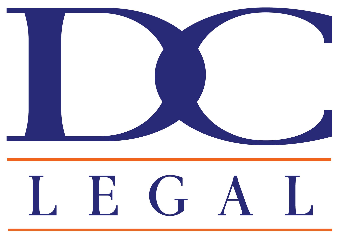What is a living will and why do you need one?
In order to explain what a Living Will is, it is important to first explain what it is not. Despite the fact that this document is labeled a “will,” it shares very little in common with a last will and testament. Rather than controlling property disposition upon death, as a traditional will does, a Living Will instead instructs health care providers whether or not to pursue life-sustaining treatment for incapacitated individuals in a “terminal” or “permanent unconscious” condition.
Advance Health Care Directives
Pre-planned health care decisions, however, need not be limited to situations where a person is either terminally ill or permanently unconscious. On the contrary, an individual may plan in advance for any form of incapacity, and an individual’s advance health care decisions may cover any instruction imaginable, ranging from basic comfort requests to organ donation. Documents containing any type of advance health care preference are known as “Advance Health Care Directives.” A Living Will, therefore, is simply a specific type of Advance Health Care Directive, one that controls life-sustaining treatment for the terminally ill or permanently unconscious. Another common type of Advance Health Care Directive is a Health Care Power of Attorney. Although a Living Will is a specific type of Advance Health Care Directive, these two terms are often confused or used interchangeably.
So why are there multiple, often confusing, terms for these very similar documents? The answer lies in the fact that the term “Living Will” was coined as part of a specific legislative response to a polarizing historical time period. Living Wills were created by state legislatures as a reaction to social debate regarding the artificial prolongation of life, an ongoing debate brought to the public eye through polarizing media events such as the Terri Schiavo series of court cases. State governments produced specific legislation meant to enable individuals to create Living Wills, so as to avoid the protracted litigation seen in cases like that of Terri Schiavo. In effect, the confusing similarity between the terms “Living Will” and “Advance Directive” is a form of definitional ‘scar tissue’ resulting from the different historic legal responses to rapidly changing medical technology.
What happens if I do not have a Living Will or other Advance Directive?
The question now becomes, what would happen to an individual with no Living Will or other Advance Directive, who is incapacitated and unable to communicate his/her health care preferences? In these cases, Washington state law looks to a surrogate decision maker to step in and make the health care choices for the patient, in the following order of priority:
- Guardian (if any);
- Individual who has been given a durable power of attorney;
- Spouse or domestic partner;
- Adult children;
- Parent(s); or
- Adult sibling(s).
Is there really that large of a risk associated with not having a Living Will or other Advance Directive?
In light of Washington’s surrogate decision making statute, one might ask, “is there really that large of a risk associated with not having a Living Will or other Advance Directive? Doesn’t the Washington statute provide an effective and reasonable way to appoint someone to make decisions on my behalf?” The answer is that, although the surrogate decision making process can function well in certain instances, it is certainly not the most ideal decision making tool for an incapacitated individual. An incapacitated individual relying on Washington’s surrogate decision making statute is prone to three serious risks.
Risk 1: Loss of Autonomy
An incapacitated individual faces the possibility that the default surrogate decision maker will not make decisions that reflect his/her values. Many people have passionate views regarding end-of-life decisions, and the surrogate decision maker may not know of the individual’s preferences. Married individuals would be wrong to think that their spouse would always be available to make decisions for them, as is the case where both spouses are incapacitated as the result of the same accident.
Risk 2: Lack of Consensus
Washington state law requires that, if there are multiple surrogate decision makers in a decision making class (such as when there are multiple adult children, parents or adult siblings), there can be no decision made unless that decision is a unanimous one. This rule of unanimity creates the result that, even if only one person out of a large group disagrees with a course of treatment, that person may have the ultimate power to control that decision. For example, it would make no difference if six out of seven adult children decided that it was time to withdraw the parent’s life-support; there could be no withdrawal of life-support in such a case without the consent of that seventh child.
Risk 3: An Expensive Guardianship Proceeding
There is another risk of which those with no form of advance directive should be aware: the possibility that there will be no surrogate decision maker available. This situation is possible when all the surrogate decision makers are either deceased or otherwise unavailable to make decisions on the patient’s behalf. In these cases, a court, in response to a petition, may appoint a guardian to make decisions on behalf of the incapacitated patient. A full explanation of the guardianship process is outside the scope of this article but, suffice it to say, guardianship is best used only as a last resort. The guardianship process, although important to protect the best interests of an incapacitated individual, is an expensive process involving court fees that have the potential to drain the finances of the incapacitated person.
Conclusion
The risks outlined above highlight the importance of making some form of advance health care directive. Arguably, the most ideal advance directive is a durable health care power of attorney, which enables a well-informed holder of such a power to responsively advocate and manage the health care decisions of the incapacitated patient. A Living Will or other form of Advance Directive, while less likely to effectively address every future medical care issue, is nonetheless an effective means of communicating an incapacitated patient’s wishes to his/her medical provider.
See a more comprehensive version of this article published in the April 2016 King County Bar Association (KCBA) Bulletin.
Interested in creating a Living Will or Power of Attorney? Contact one of our Kirkland estate planning attorneys.







